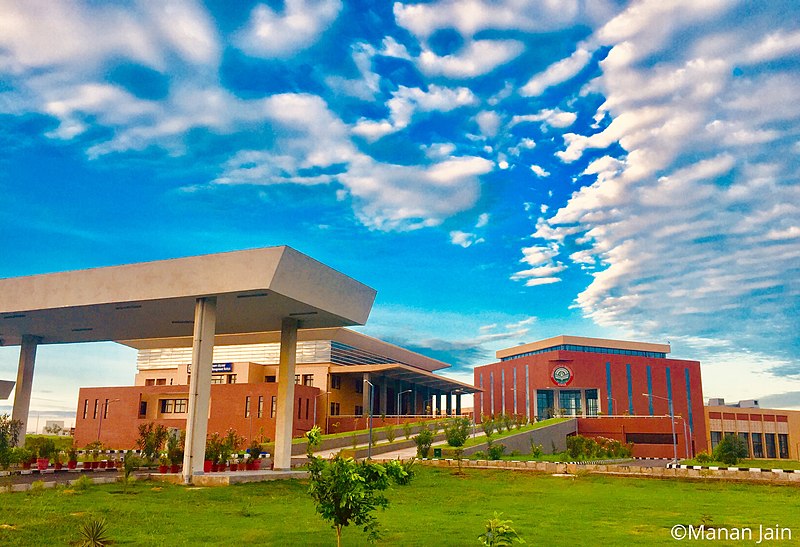- INTRODUCTION
India’s democratic system is in essence disillusionment. The only goal we have observed in this paradoxical system is this unquenchable thirst for political power- the power of the state or at least to be in the vicinity of that power by any means- fair or foul. Thus, crafty corruption, deception and degradation of values- moral, ethical and socio-political- are found throughout the country, consequent upon practicing the democratic system. Threats, intimidation, rigging, boot capturing, bribing, allurement and murder have become an integral part of Indian elections.
India is no longer a model for the emerging democracies across the world. Free and fair elections are essentially hallmarks of an efficient and functional democracy. Our election system is in a dire need for strategic and systematic improvements. The criminalisation of our political system has been observed almost unanimously by all recent committees on politics and electoral reform.
Criminalisation of politics has many forms; the most alarming among them is the significant number of elected representatives with criminal charges pending against them.While the massive size of the electorate makes holding elections a daunting task, involves the presence of issues such as booth capturing, intimidation of voters, tampered electoral rolls, large-scale rigging of elections and other polling irregularities; the proliferation of non-serious candidates; and the abuse of religion and caste in the mobilization of voters.
The Vohra Committee on “Criminalisation of Politics” was constituted towards the objective of identifying the extent of the political-criminal nexus and recommend ways in which the menace can be effectively dealt with. This report contained several observations made by official agencies on the criminal network which was virtually running a parallel government. It also discussed criminal gangs who enjoyed the patronage of politicians, of all parties, and the protection of government functionaries. It revealed that political leaders had become the leaders of gangs. They were connected to the military. Over the years criminals had been elected to local bodies, State Assemblies and Parliament. In 1997, the Supreme Court recommended the appointment of a high-level committee to ensure in-depth investigation into the findings of the N N Vohra Committee and to secure prosecution of those involved. The report discussed that money power is in essence utilized money power to develop a network of muscle-power which is used by politicians during elections. Nothing drives the public to act in a certain way better than the infusion of some fear. Muscle-power or any other form of intimidation dictates the behavior of the masses. It is a well-observed fact that the judicial system is constituted to deal with individual offences and crimes. Even in other countries, organized crime has permeated through levels of the government with ease. With such a poison spreading through the State system the country, the organized crime scene has persisted and the legal systems have been unable to tackle it. This scenario exists in India as well. Mafia syndicates in India have established a nexus with governmental functionaries and political leaders and have thus been able to operate with impunity. The Vohra Committee ended on a poignant note, reiterating the fact that there was a vital need to set up a nodal point for all intelligence and enforcement agencies to tackle the problem of criminalization of politics.
- CANDIDATURE AND CRIMINALIZATION – THE LAWS AT PRESENT
Currently, Rule 4A of the Conduct of Election Rules, 1961, prescribes that each candidate must file an affidavit. Regarding (i) cases, if any, in which the candidate has been accused of any offence punishable with imprisonment for two years or more in a pending case in which charges have been framed by the court, and (ii) cases for conviction for an offence other than any of the offences mentioned in Section 8 of the Representation of the People Act, 1951, (Hereinafter referred as the R.P. Act, 1951) and sentenced to imprisonment for one year or more.
In addition to this, pursuant to the order of the Supreme Court, the Election Commission on March 27, 2003, has issued an order that candidates must file an additional affidavit stating Section 125A of the R.P. Act, 1951 prescribes penalties for withholding or providing incorrect information on Form 26, which amount to imprisonment of up to six months, or fine, or both. In its report entitled Proposed Electoral Reforms, 2004 the Election Commission of India notes that “in some cases, the candidates leave some of the columns blank…there have been cases where candidates are alleged to have given grossly undervalued information.”
- RECOMMENDATIONS
In its report on Proposed Election Reforms, 2004, the Election Commission of India recommended that an amendment should be made to Section 125A of the R.P. Act, 1951 to provide for more stringent punishment for concealing or providing wrong information on Form 26 of Conduct of Election Rules, 1961 to minimum two years imprisonment and removing the alternative punishment of assessing a fine upon the candidate. It also recommended that Form 26 be amended to include all items from the additional affidavit prescribed by the Election Commission, add a column requiring candidates to disclose their annual declared income for tax purpose as well as their profession. Essentially an amendment must be made to the R.P. Act, 1951, by inserting a new section 4A after section 4 to make declaration of assets and criminal cases pending against the candidate part of the qualifications necessary for membership to the House of the People.
The National Commission to Review the Working of the Constitution recommended that special election benches designated for election petitions only should be formed in the High Court. The Election Commission has also made a similar recommendation. The Second Administrative Reforms Commission, in its report “Ethics in Governance”, recommended in detail that: “Special Election Tribunals should be constituted at the regional level under article 329B of the Constitution to ensure speedy disposal of election petitions and disputes within a stipulated period of six months. Each tribunal should comprise a High Court judge and a senior civil servant with at least 5 years’ experience in the conduct of elections Section 8 (1) Of the R.P. Act, lists certain crimes and stipulates a disqualification period of 6 years from the date of conviction. In order to deter politicians with a criminal background and that too with regards to committing heinous crimes, the R.P. Act must be expanded in its scope. In case a candidate has charges framed against him with regards to offences listed in S.8 (1) and otherwise, he should be disqualified for a period of six years. However mere disqualification for a period of time cannot under any circumstance be the final cure. In order to set aside the political red-tapism and other lacunae, it is only by example that de-criminalisation of politics can take place. Candidates violating this provision should be disqualified and political parties putting up such candidates with knowledge of their antecedents should be derecognized and deregistered. An important submission of many committees on this matter state that any person convicted for heinous crimes such as murder, dacoity, rape, smuggling etc. should be permanently disbarred from contesting political office.
There is an inherent need to supersede the existing judicial hierarchy and establish fast-track based judicial system vide special courts to accomplish this purpose. This entails a quick-fire trial within a period of six months from the framing of charges so as to determine whether a candidate is qualified to hold office or not, or applies for the post vide public elections.
3.1 NEGATIVE AND NEUTRAL VOTING
The criminalisation of politics, widespread corruption in the system, and use of violence, voter intimidation, etc. may result in their being no desirable candidates within those contesting for elections in a particular constituency. There is no system in place and further compounds the delay as voter decline to be a part of the electoral process and the same candidates are re-elected from the constituencies again and again.
The Law Commission of India as well as the Election Commission of India have time and again reiterated the institution of the neutral or negative voting system. This system entails that the voter has the choice to reject the candidates on the ballot by the selection of “none of the above”. With the institution of such a system there could be a democratic safeguard and the proportional share of negative or neutral votes polled could, if sufficient, render the current election to be null and void and re-election would consequently be taken up.
3.2. BETTER MANAGEMENT AND CONDUCT OF ELECTIONS
According to the ECI, the size of the electorate for the 2009 elections to the 15th Lok Sabha was more than 714 million. In quantitative terms, such a number is equal to holding elections for Europe, U.S.A, Canada, and Australia collectively. The rigging of elections has become a common facet in the Indian political environment.
The electoral process begins with the preparation of electoral rolls. Political parties and influential persons manage large-scale registration of bogus voters, or large-scale deletions off “unfriendly-voters”. The Goswami Committee on Electoral Reforms stated that irregularities in electoral rolls are exacerbated by purposeful tampering done by election officials who are bought by vested interests or have partisan attitudes.
The National Commission to Review the Working of the Constitution had suggested in 2001, the creation of an online database maintained by the ECI. Inherently it follows the same principles as the “Aadhar” or the Unique Identification Cards (UID’s). It involves each voter possessing their own unique barcode which can be verified at any polling booth by a simple hand-held device. However, this suggestion is riddled with problems in the face of muscle power and intimidation. In order to combat the threat of physical intimidation of voters or of those involved in the electoral process, the ECI must be given the power to void the elections and call for a fresh one to be held.
3.3 ADJUDICATION OF ELECTION DISPUTES
Disputes relating to elections of the State Legislature and Union Legislature are adjudicated upon exclusively by the High Court(s) before whom election petitions under Section 80 and 80-A of the Representation of Peoples Act, 1951, are filed. Sections 86(6) and (7) of the R.P. Act, provide that the High Court shall make an endeavor to dispose of an election petition within six months from its presentation and also as far as practically possible conduct proceedings of an election petition on a day to day basis. In practice, however, cases involving election petitions are rarely resolved in a timely manner. According to the report “Ethics in Governance” of the Second Administrative Reforms Commission, “such petitions remain pending for years and in the meanwhile, even the full term of the house expires thus rendering the election petition infructuous.
3.4. ELECTORAL REFORMS
The Supreme Court in a judgment in 1997 while hearing Dinesh Trivedi (MP) and Ors. v. Union of India observed with alarm, the devastating impact of criminals in the diaspora of politics. It asked the President of India to set up a high-level committee in consultation with the Prime Minister and the Speaker of the Lok Sabha in order to eliminate the criminal nexus between criminals, politicians, and bureaucrats as inferred in the Vohra Committee report as well.
Reform is a continuous process. The accomplishment of the modification would depend upon the operational compliance of the coordination of electoral machinery, the political parties, the candidates and electorate at all levels. Over the years, the Election Commission has handled a number of issues and accomplished commendable electoral reforms to fortify democracy and augment the even-handedness of elections. These alterations are ample and venerable. Undeniably, the election machinery, under the sponsorship of the EC, justifies its credibility for organizing elections in a free and fair method.
- CONCLUDING SUGGESTIONS
The criminalization of politics needs a multi-pronged approach in order to be tackled. Mere institutional implementations have never succeeded in the elimination of any evil. What we must observe is that criminalization of politics is a deep-seated problem and has permeated the very core of how Indian politics functions. The creation of one nodal agency cannot strive to eradicate it. The Election Commission though instrumental still lacks the “death-blow” style to it inherent powers. Although this organization is not effectively powerless it has been unable to function as a cohesive unit. Effective controls must be vested into the Election Commissions hands by the Legislature. The Legislature in itself must create a system so as to root out the evil from within. Reforming the political process is only the part of the process. The government machinery must be restructured and reorganized so as to weed out the criminals from the system.
The citizens themselves should be empowered by Law and shall act upon the undue intimidation by the “thug-culture” per se. Positive political power needs to be exercised so as to imbibe within the voting gamut of the population, the power to influence events, resources, and human behavior to promote the overall public good. In India, this positive power is severely restricted because of the way we designed our governance structure. The present electoral systems favor entrenched parties and individuals, allowing very little scope for reform. Due to the feudalistic nature of the political parties, many promising individuals lost in the quagmire of Indian Politics and hence this discourages the inclusion of promising individuals in the field of politics. The implementation of the active participation of people, whether or not backed by a big political party, commencing at the grassroots-level is the need of the hour. Once, the system has able men within it only then can the structure improve, not vice versa. Electoral reforms, Legislation and the Judiciary can only play a limited role in the process. The rest lies in the hands of the inclusion of a comprehensive system of individuals backed by voters who realize the true worth of their vote. Politics is a shady business and continues to be. It is understandable for the citizens of this nation to feel disillusioned and helpless. As the proverb goes “fight fire with fire”, effective legislation is the only key. Harsh punishments have been a common deterrent for crime and have been effectively utilized in a majority of countries, i.e. Exemplary punishments with the exception of the death sentences.
Arming the Election Commission of India (ECI), which has been always identified as a power-less institution, with effective over-riding powers with regards to the conduct of free and fair elections and other allied affairs is the need of the hour. The prime thrust of running a democracy lies upon its citizens and not any other entity. With large portions of the present electorate being illiterate, it is indeed a challenging task imbibing a sense of political fore-thought in them. However, citizens can only face grave injustice and criminal elements of their representatives to an extent.
Elections are in essence mere “gutter-fights”, the quintessential example of the traditional and cruel game of “fight-to-death”. The Election Commission has remained as a passive spectator through all this. Elections for a sizable part of the voters seem to be a meaningless farce. Reforms have assisted in cleansing the system to a highly limited extent; however, the scenario stays largely unchanged. Change, radical and extreme change is the need of the hour.




























































